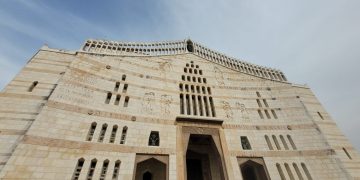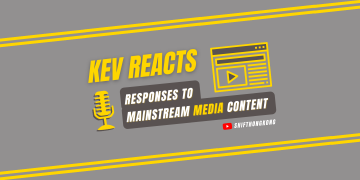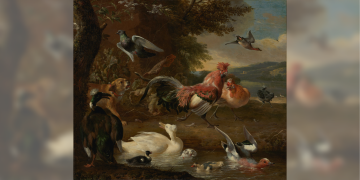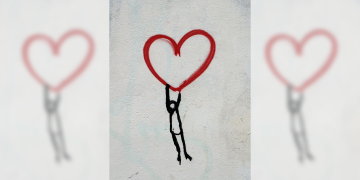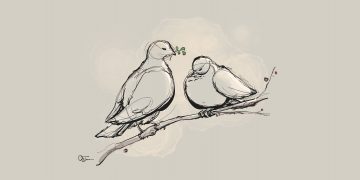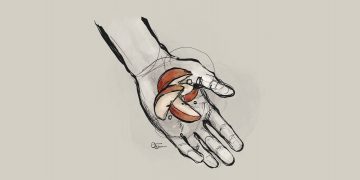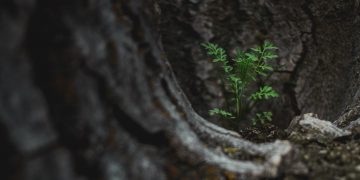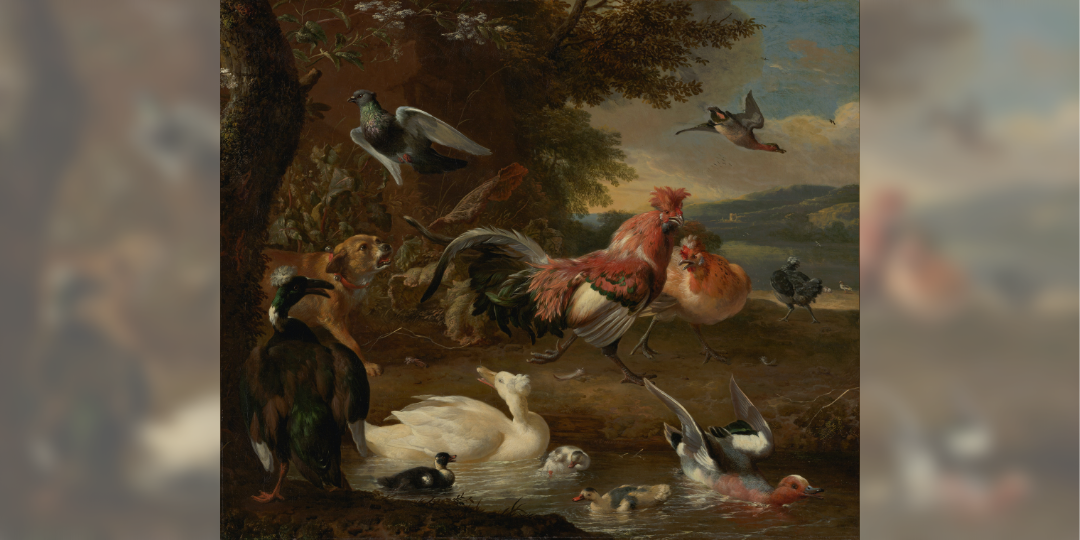DISCLAIMER: The following only represents the views of the author and does not reflect the views of Island ECC.
—
(Continued from Part 1)
Some time ago, I had a pleasant discussion on veganism with one of my sisters in Christ. At one point during the conversation, she asked me in earnest: “Do you really believe that?” While I forget what prompted it, this snapshot is still vivid in my memory. We were riding an escalator as I looked up toward her without the slightest idea what to say—something about the genuine nature of her tone caused me to second-guess myself. At the time, my Christian veganism was passive: I led only by example, quietly. I did not debate the subject and had committed neither facts nor verses to my memory. If anything, I considered myself more of a danger to the cause than a leader or an activist—the subject was too dear to me. It was too much responsibility … what if I said the wrong things and turned someone away for good, rather than planted a seed? But thanks to my friend’s Spirit-prompted question, I took the time to search my heart and thoughts, and to re-examine my posture against God’s perfect truth, something I had not done in a while. Not only am I grateful she asked, I am now happy to report that I can answer her with rekindled purpose. God knew I had to reaffirm the strength of my beliefs to gain the confidence I needed in order to better serve Him in this area of my life where faith meets deeds. Only then could I surrender to my calling—to fight the enemy’s evil perversions of mankind’s dominion on earth—through the Christian vegan activism I once shied away from.
“For every animal of the forest is mine, and the cattle on a thousand hills. I know every bird in the mountains, and the insects in the fields are mine.” (Psalm 50.10 NIV)
Sanctity of Life
Man was created in His image, to long for the things God longs for, to delight in what delights Him, to lament over what pains Him, and to repent of the sinful ways He despises. Loving God also means loving God’s creatures. The very first book of the Bible, Genesis, establishes the intrinsic value of His animals, along with the concept of Dominion. As the sustainer of life, our God knows, loves, and cares deeply for each and every one He created, blessed, and declared good. Yes, every sparrow and every ant (Matthew 10.29, Proverbs 6.6-8, Proverbs 30.24-28), as well as every man and woman. He is “God of the spirits of all flesh” (Numbers 27.16) and His design is a perfect one. Each of His creatures has been molded individually with distinct personalities—each experiences true emotions and pain, likes and dislikes, enjoys play, mourns loss, and seeks out comfort and affection just as we do. Never would a loving God, who cares so deeply for His Creations, design creatures with souls, sentience, and a desire to live their God-given life intending for them to be killed for food. On the contrary, God designed plants without sentience for that specific purpose: to be “for our meat.” His ideal since the Garden of Eden cast animals as the companions of man; God intended for them to live together in harmony and He provided plants, fruits, and seeds to feed them both.
The very first book of the Bible, Genesis, establishes the intrinsic value of His animals, along with the concept of Dominion. As the sustainer of life, our God knows, loves, and cares deeply for each and every one He created, blessed, and declared good.
“And God said, Behold, I have given you every herb bearing seed, which is upon the face of all the earth, and every tree, in the which is the fruit of a tree yielding seed; to you it shall be for meat.” (Genesis 1.29 KJV)
Dominion
Like the term “fear of God,” the use of the word “meat” in translated scripture can lead to confusion: often it refers to food as general sustenance (brōma: that which is eaten, victuals) or even spiritual meat (nourishment for the soul, manna, etc.), rather than the animal-flesh this word now commonly means. Perhaps more misguided still is our reading of the word “dominion,” which is too often misused in attempts to excuse our perverted treatment of the innocent and the meek.
“Then God said, ‘Let us make man in our image, after our likeness. And let them have dominion over the fish of the sea and over the birds of the heavens and over the livestock and over all the earth and over every creeping thing that creeps on the earth.’” (Genesis 1.26 ESV)
Dominion means sovereignty. Is this a license to exploit and mistreat? No. On the contrary, it is a burden of care, a shepherd’s burden of (well) keeping. It says, here, hold on to this precious and fragile thing for me, I entrust it to your care—you are responsible for it now. Some translations use (instead of dominion) the words rule, reign, or authority. Indeed, much like lords have over their lands, kings over their kingdoms, and parents over their children, to have dominion over something means to be put in charge of it. Such a role imparts as much power as it does responsibility. Power in the hands of the flawed easily becomes abuse of power. Think of how many tyrannical kings have failed and abused their people while few are remembered for the goodness of their ways or fruitful leadership. God has dominion over us, the vulnerable; He is all powerful, all mighty, and our ultimate judge and ruler. Yet is He not the kindest King, the most compassionate Father, and our merciful Leader? In Genesis, we are invited to continue God’s work of creation and tasked to bring order out of chaos—to organize, to optimize, and to cultivate the earth in service of His kingdom. Our mandate is one of redemption, not exploitation. (We’re here to make it all better, not worse.) Since the industrial age, people have been isolated to posts along assembly lines—tasked with specialized work, disconnected from the common goal and from the fruit of their labors. It can be hard to grasp how what we do impacts the world at large, to understand the ramifications of our daily micro-choices, or even to realize that we do have a choice to begin with.
In Genesis, we are invited to continue God’s work of creation and tasked to bring order out of chaos—to organize, to optimize, and to cultivate the earth in service of His kingdom. Our mandate is one of redemption, not exploitation.
“If you had known what these words mean, ‘I desire mercy, not sacrifice,’ you would not have condemned the innocent.” (Matthew 12.7 NIV)
In this context, we would do well to seek out answers and to ask ourselves: how do we treat the creatures (God has) placed under our care? Are we terrible dictators, or loving rulers? If we love and value all that God loves, ought we not to abhor the needless massacre of billions, as well as to lament the species driven to extinction each day by our own doing? Should we not mourn each of these losses with Him, and repent of the ways that cause them? If love, mercy, and compassion are the ways of God, the exploitation, murder, and torture of the innocent sound a lot like the ways of His enemy. After all, man and beast are brotherly creatures under one Father—both created with living souls and worthy of being taken into covenant (Genesis 9.10-17, Hosea 2.18, Isaiah 11.6-9). But only we are called to lead—with love, mercy, and compassion (Romans 12, James 4.17, Micah 6.8). As the vulnerable under God’s dominion, we ourselves have relied entirely on the same. [1]
If we love and value all that God loves, ought we not to abhor the needless massacre of billions, as well as to lament the species driven to extinction each day by our own doing?
“Blessed are the merciful, for they shall receive mercy.” (Matthew 5.7 ESV)
——
[1] “If you have men who will exclude any of God’s creatures from the shelter of compassion and pity, you will have men who will deal likewise with their fellow men.” – Saint Francis of Assisi
——
Continue reading: Part 3
STEWARDSHIP — on Loving God’s Creation. “A gaggle of geese… an integrity of priests?!”
——
Further Reading:
Damien’s CHRISTIAN VEGAN GUIDE

